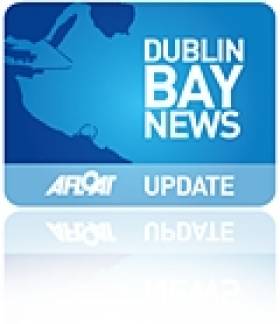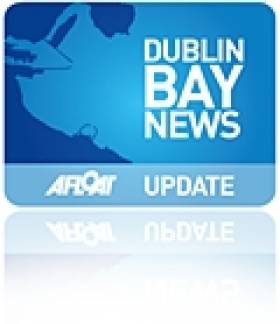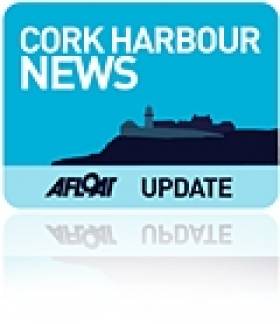Displaying items by tag: US training ships
#UStrainingShips –Afloat.ie can now confirm following our previous report, that the US training ship T.S. Empire State (1962/14,557grt) had made a 'sail-past' only visit of Dublin Bay this morning while en route to Copenhagen.
The vessel is no stranger to Dublin Port having called on previous occasions.
The brief appearance of the former general cargoship on US Independence Day, involved the vessel circling around the southern end of the bay before departing off the Baily Lighthouse.
On board are male and female students from the Maritime College of the State University College of New York (SUNY) who are undertaking their Summer Sea Term, which is held annually.
#UStrainingShips -Today been the 4th July, the United States celebrates its Independence Day where patriotic events take place also overseas and on board a pair of training vessels in Irish waters, writes Jehan Ashmore.
As previously reported on Afloat.ie, the two US training ships visited Cork recently, SSV Corwith Cromar and TS Empire State (1962/14,557grt) though the latter vessel this morning arrived into Dublin Bay.
As part of her annual Summer Sea Term, she is scheduled to visit several European ports and among them the next port is call is understood to the Danish capital of Copenhagen.
The arrival into Dublin Bay of the cadetship with students from the Maritime College of the State University College of New York (SUNY) is somewhat surprising, though for the last three days she undertook training exercises held off Cork Harbour with overnight anchorage taken offshore.
It remains to be confirmed if the former general cargoship which has visited Dublin Port previously is set to make an un-scheduled call.
Or this could merely be a 'sail-past' of Dublin as part of the route taken of the Empire State during her passage through the Irish Sea, past Scotland and onward to Scandinavia.
Also following a transatlantic sail from the US East coast, the other training vessel, the steel-hulled 1988 built SSV Corwith Cramer which made her first visit to Cork. She remains berthed at Cork City Marina where she was open to the public last Sunday.
On Tuesday a talk "One Ocean: Lightening Talks on Ocean Discovery" was held on board with researchers from the US and Ireland. She is due to depart on Sunday.
US Training Ships Mark New and Old Ties with Cork Harbour
#UStrainingShips - A pair of US training vessels, one under sail the other motor-propelled have made new and continued old ties with Cork Harbour, writes Jehan Ashmore.
Following a transatlantic sail from the US East coast, the SSV Corwith Cramer which as previously reported made her first visit to Cork City is berthed at the marina and was made open to the public yesterday.
The 1988 built sail training vessel belongs to the Sea Education Association (SEA) and the school ship will spend over a week on the river Lee. She is expected to depart next Sunday and continue her first visit to ports on the European mainland.
Meanwhile, the other US vessel reported earlier is the veteran merchant training ship T.S. Empire State (1962/14,557grt) which has been berthed in lower Cork Harbour at Cobh has since departed.
Having said that, the former general-cargoship now a training ship of the Maritime College of the State University College of New York (SUNY) remains currently at anchor off Cork Harbour.
The ship has made Cork her Irish port of call on several occasions in addition to Dublin. Her cadets are preparing to embark on the next leg of her annual Summer Sea Term where the Danish capital of Copenhagen is her next port of call.


























































